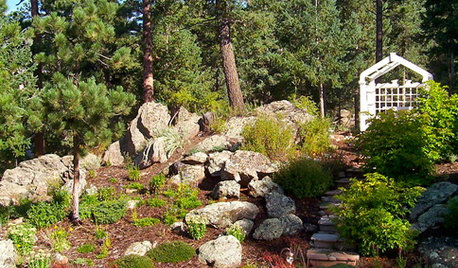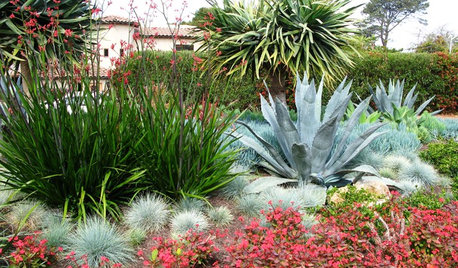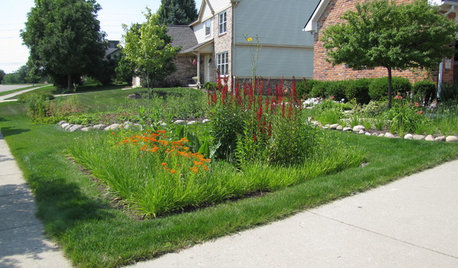Soil Test
gardengirl36
10 years ago
Related Stories

GARDENING GUIDESGet the Dirt on Your Garden’s Soil
Understand how your soil supports your plants so you can ensure your garden’s success
Full Story
GARDENING GUIDESHow to Stop Worrying and Start Loving Clay Soil
Clay has many more benefits than you might imagine
Full Story
GARDENING GUIDESHave Acidic Soil in Your Yard? Learn to Love Gardening Anyway
Look to acid-loving plants, like conifers and rhododendrons, to help your low-pH garden thrive
Full Story
GARDENING GUIDESGardening Solutions for Dry, Sandy Soils
Has your desert or beachy site withered your gardening creativity? Try these ideas for a beautiful, easy-care landscape
Full Story
FARM YOUR YARDHow to Get Good Soil for Your Edible Garden
The nutrients in your soil feed the plants that feed you. Here are tips on getting it right — just in time for planting season
Full Story
GARDENING GUIDESGrow a Beautiful Garden in Alkaline Soil
Got alkaline soil? Learn how to manage it and the many beautiful plants that will thrive in this ‘sweet’ soil
Full Story
LANDSCAPE DESIGNHow to Shape a Rain Garden and Create the Right Soil for It
Learn how to grade, lay out and amend the soil in your rain garden to support your plants
Full Story
GARDENING GUIDESGardening Solutions for Heavy Clay Soils
What’s a gardener to do with soil that’s easily compacted and has poor drainage? Find out here
Full Story
GARDENING GUIDESThe Poop Scoop: Enrich Your Soil With Good Old Manure
Get over the ick factor already — this natural super-ingredient for soil has so many benefits, you'll wonder why you ever went chemical
Full Story
GARDENING GUIDESThe Simple Secret to Gardening Success
Learn the kinds of soil and a DIY type test to make sure you’re putting the right plant in the right place
Full StoryMore Discussions








8fleetfeet
gardengal48 (PNW Z8/9)
Related Professionals
Carlisle Landscape Architects & Landscape Designers · Holly Springs Landscape Architects & Landscape Designers · Ashland Landscape Architects & Landscape Designers · Saint Matthews Landscape Architects & Landscape Designers · San Juan Landscape Architects & Landscape Designers · McKinney Landscape Contractors · Englewood Landscape Contractors · Inglewood Landscape Contractors · Maywood Landscape Contractors · South Farmingdale Landscape Contractors · Dayton Decks, Patios & Outdoor Enclosures · Fullerton Decks, Patios & Outdoor Enclosures · Harrisburg Decks, Patios & Outdoor Enclosures · Inwood Decks, Patios & Outdoor Enclosures · Norman Decks, Patios & Outdoor Enclosuresrhizo_1 (North AL) zone 7
TXEB
Kimmsr
gardengal48 (PNW Z8/9)
TXEB